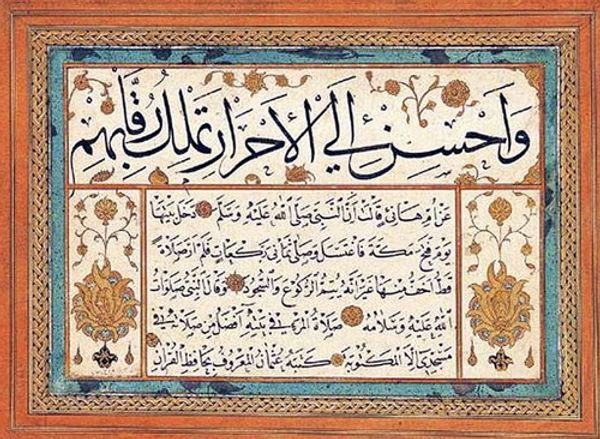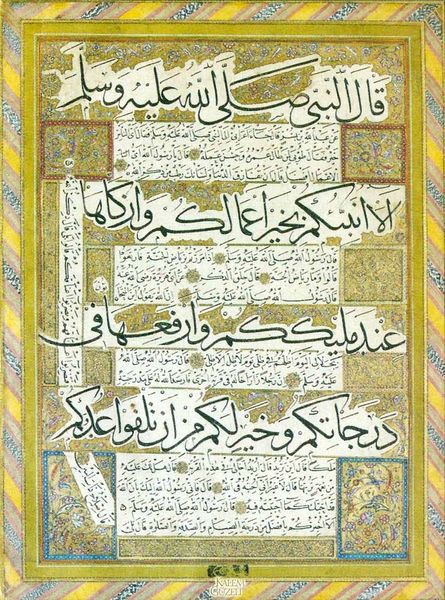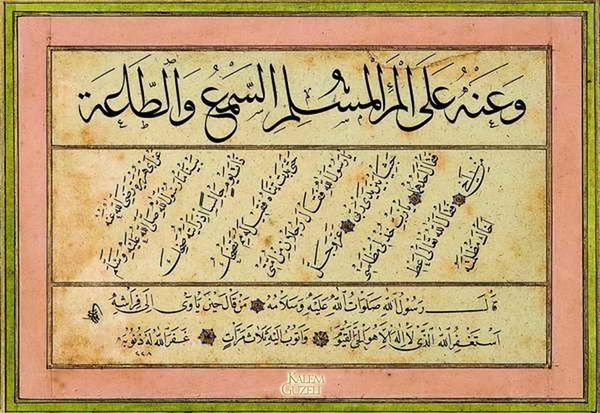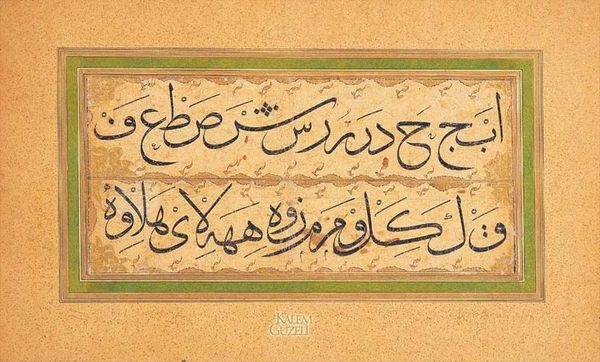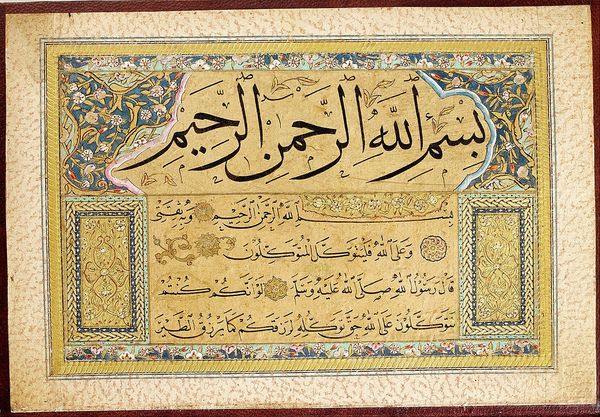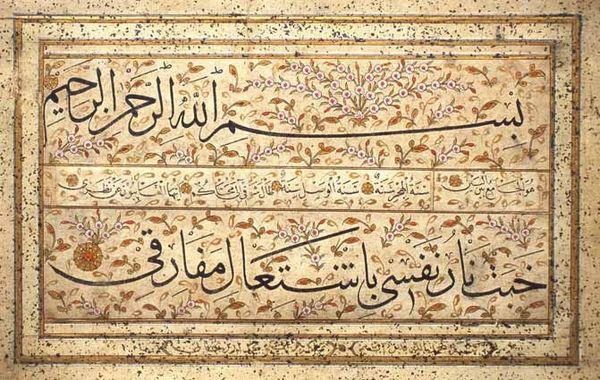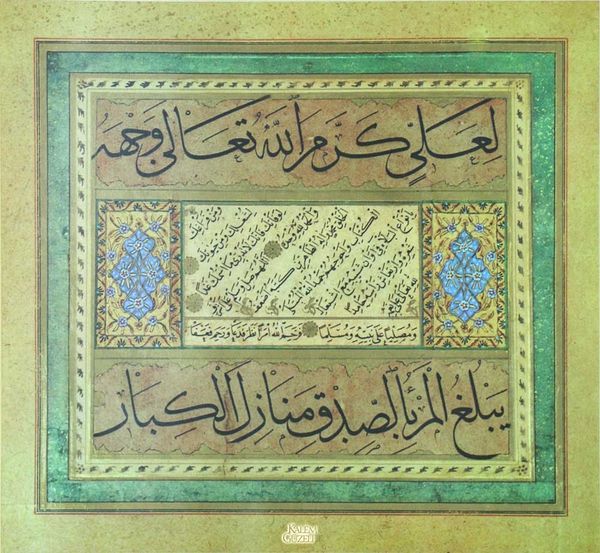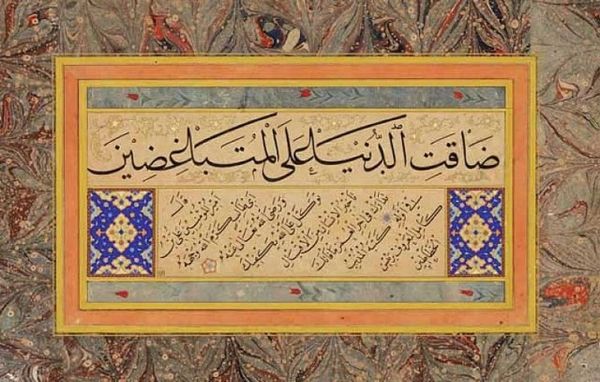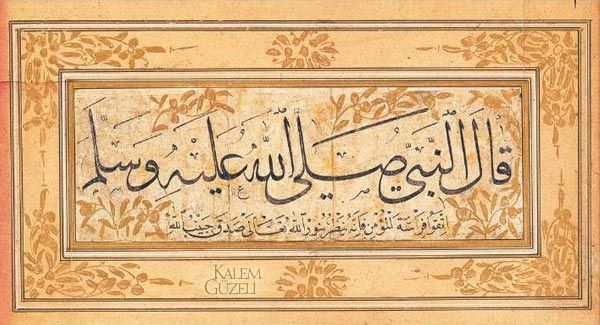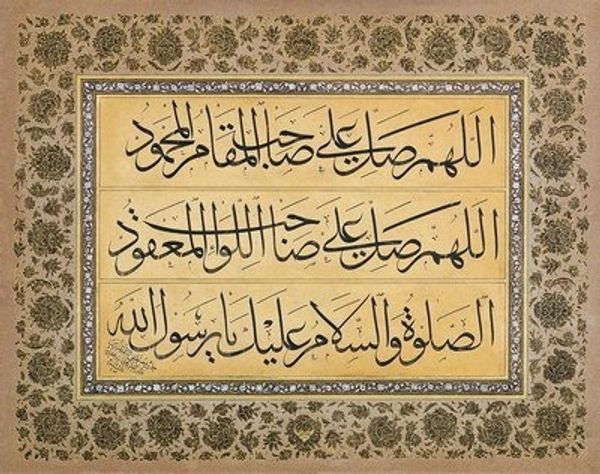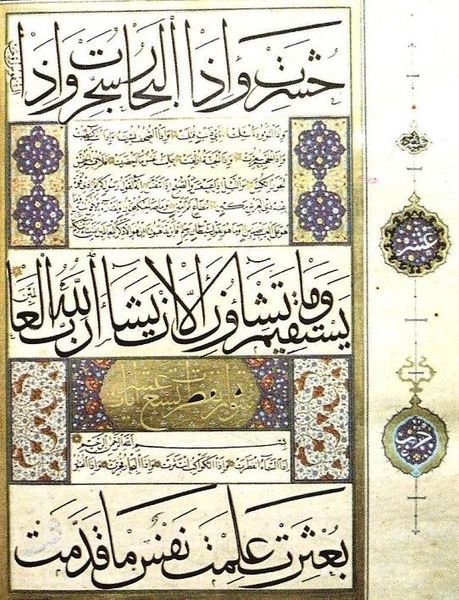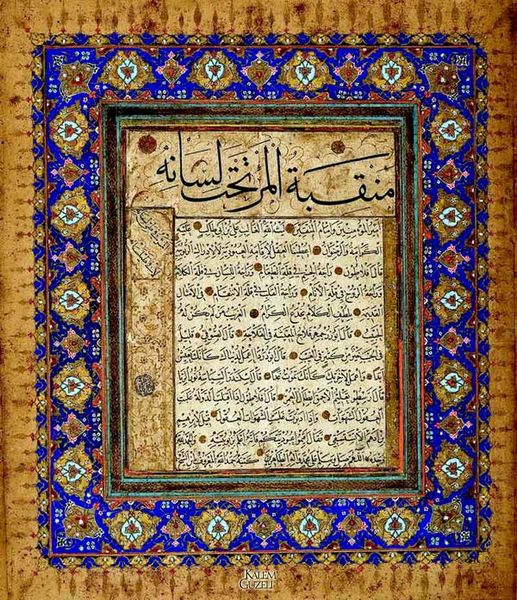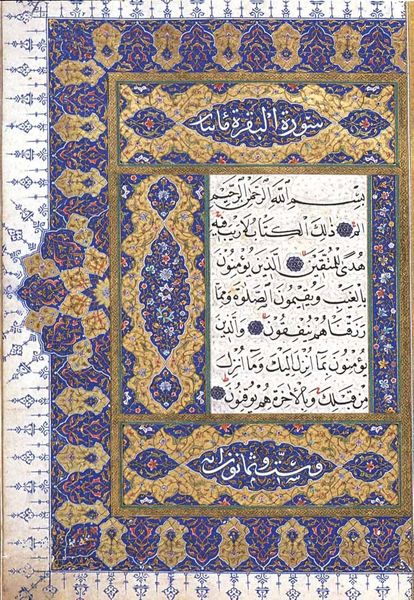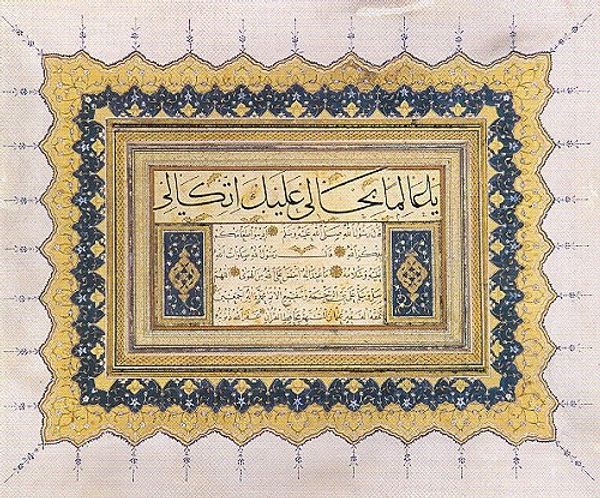
drawing, textile, ink
#
drawing
#
textile
#
geometric pattern
#
ink
#
organic pattern
#
geometric
#
islamic-art
#
miniature
#
calligraphy
Copyright: Public domain
Hafiz Osman created this calligraphic panel with ink and gold on paper sometime in the 17th century. The Ottomans patronized calligraphy through state institutions, which ensured a continuous demand for the art form and a clear set of aesthetic preferences. Here, Osman renders religious verses in the elegant Sulus and Nesih scripts. These scripts were highly valued within Ottoman court circles, where calligraphy was not only an art form, but also a demonstration of power and cultural sophistication. Note the intricate illumination of vegetal motifs surrounding the central text; these also reflect elite tastes. As a historian, I am interested in how the social standing of Osman, who was a prominent calligrapher and teacher, influenced the production and reception of his work. Archival documents can offer a window into the artistic networks, patronage systems, and cultural values that shaped the creation of this calligraphic panel.
Comments
No comments
Be the first to comment and join the conversation on the ultimate creative platform.
